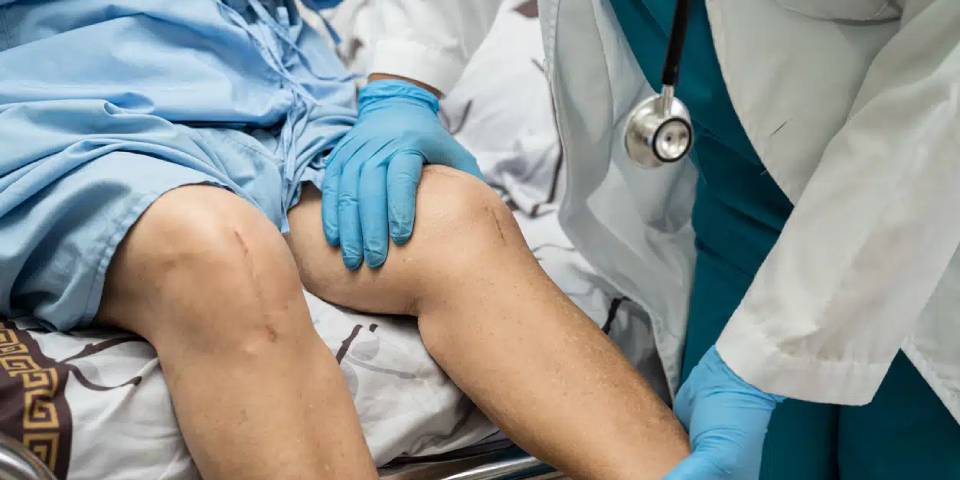
- 09/08/2024
- Dr. Ashwini Gaurav
- 0 Comments
- Joint Replacement
Preventing Infection After Joint Replacement Surgery
Joint replacement surgery, whether for the hip, knee or another joint, is a significant procedure that can greatly enhance mobility and quality of life. While infections after joint replacement are relatively uncommon, occurring in about 1 in 100 patients, they can pose serious risks if they do happen. These infections can cause severe pain, delay the recovery process, and occasionally need additional surgeries. Fortunately, the probability of infection is lower in individuals who are in good overall health. Taking a visionary way to prevent infection is thus critical for ensuring a successful recovery. In this guide, Dr. Ashwini Gaurav, an orthopedic specialist in Patna, outlines the warning signs of infection and provides essential preventative measures to help you secure your health and maximize the benefits of your joint replacement surgery.
Warning Signs of Infection:
Dr. Ashwini Gaurav, a specialist in hip replacement surgery, highlights the significance of recognizing early signals of infection for prompt treatment. Here are some warning signs to watch for:
- Swelled Pain: While some pain is expected post-surgery, a sudden boost in pain at the surgical point may indicate an infection.
- Redness and Swelling: If the area around the incision becomes increasingly red or blown, it could be a signal of infection.
- Fever: A fever advanced more than 100.4 °F( 38 °C) can be a symptom of an infection.
- Drainage: Any unusual or foul-smelling discharge from the surgical point should be reported to your doctor immediately.
- Warmth: A feeling of warmth around the surgical area can indicate inflammation and infection.
Preventive Measures Before Surgery:
Medical Evaluation:
- Comprehensive Check-up: Ensure a thorough medical evaluation to identify and treat any infections or health effects before surgery.
- Diabetes Management: If you have diabetes, work with your healthcare provider to keep your blood sugar levels under control.
Lifestyle Adjustments:
- Quit Smoking: Smoking can impair circulation and decelerate the recovery process. It’s advisable to quit smoking well before the surgery.
- Healthy Diet: Eating a balanced diet rich in vitamins and minerals can boost your vulnerable system and promote recovery.
Skin Preparation:
- Shower with Antibacterial Cleaner: Before surgery, you may be instructed to shower with antibacterial cleaner to reduce the threat of skin infections.
- Avoid Shaving: Don’t shave the area around the surgery point as it can affect tiny nicks in the skin, which can be entry points for bacteria.
Preventive Measures During Surgery:
Sterile Environment:
- Operating Room Protocol: The surgical team will ensure that the operating room is sterile and follows strict protocols to maintain a clean atmosphere.
- Sterile Instruments: All surgical instruments are sterilized to prevent infection.
Antibiotics:
- Preoperative Antibiotics: You will likely receive antibiotics before the surgery to reduce the risk of infection.
- Postoperative Antibiotics: In some cases, antibiotics may be continued after surgery as a precaution.
Surgical Techniques:
- Minimally Invasive Procedures When possible, minimally invasive ways are used to reduce the threat of infection by minimizing tissue damage and exposure.
- Proper Wound Closure Ensuring that the surgical point is closed properly and securely can help prevent bacteria from entering the injury.
Preventing infection after joint replacement surgery is vital for a smooth recovery. Dr. Ashwini Gaurav knee replacement specialist in Patna offers expert care and personalized advice to help you minimize pitfalls and ensure effective recovery. For tailored support and guidance, book an appointment with Dr. Gaurav today and take the next step toward a healthier recovery.

